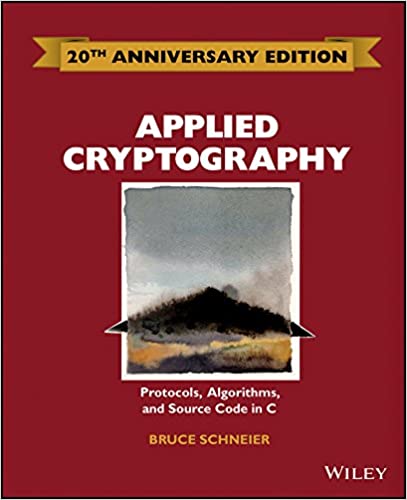ภาพประกอบจาก Zerochan
อ่านบทความของ Bruce Schneier นักวิชาการสายความปลอดภัยไซเบอร์ชื่อดัง (เขียนหนังสือ Applied Cryptography ตั้งแต่ปี 1994) ออกมาพูดประเด็นเรื่อง อันตรายของเงินคริปโต และความไร้ประโยชน์ของบล็อกเชน (On the Dangers of Cryptocurrencies and the Uselessness of Blockchain)

เรื่องคริปโตกับบล็อกเชน เรามักได้ยินวาทกรรม (แนวแบ่งรับแบ่งสู้) ว่า “คริปโตเป็นการเก็งกำไร แต่บล็อกเชนเป็นเทคโนโลยีที่มีประโยชน์”
มาถึงปี 2022 ผมคิดว่าเวลาได้พิสูจน์ชัดแล้วว่า วาทกรรมข้างต้นนี่มันไม่จริง
ผมเคยเขียนถึงประเด็นนี้ไปบ้างแล้ว แต่เป็นการแตะๆ ร่วมกับประเด็นอื่น
- Who are Blockchain Proponents คนที่เชียร์ “บล็อกเชน” คือคนที่ไม่เข้าใจทั้งเทคโนโลยีและการเงิน
- มายาคติแห่ง Decentralization แนวทาง decentralization ไม่ได้ดีเลิศเสมอไป มันมีข้อด้อยอยู่เยอะ
- Tomorrow Never Comes ชาวคริปโตจะบอกว่า “ให้รออีกหน่อย” เทคโนโลยียังอยู่ระหว่างการพัฒนา แต่รอมาหลายปีแล้วยังไม่มาสักทีนี่สิ
- The Web3 Bubble ทำไมต้องแก้ปัญหาด้วยบล็อกเชนแทนการใช้ฐานข้อมูลธรรมดา สุดท้ายก็ไม่ได้คำตอบที่ดีพอ
เลยคิดว่าเขียนแยกต่างหากก็ดีเหมือนกัน มี Schneier มาให้อ้างก็สะดวกดีไม่ต้องเขียนเองหมด
เริ่มจากว่า Schneier ไปเถียงกับชาวบ้านเรื่องบล็อกเชนมีประโยชน์-ไร้ประโยชน์ และพบว่าข้อถกเถียงของฝ่ายสนับสนุนบล็อกเชน (ซึ่งอาจไม่ใช่ผู้สนับสนุนคริปโต) จะมีอยู่ประมาณ 4 ข้อ
- การทำ consensus ด้วย proof-of-work นั้นเปลืองพลังงาน ทำลายสิ่งแวดล้อมจริง แต่ถ้าย้ายมากเป็นโมเดลอื่น เช่น proof-of-stake แล้วจะแก้ปัญหานี้
- แนวคิด immutable ledger ของบล็อกเชนยกเลิกธุรกรรม (undo) ไม่ได้ แต่อาจมีระบบอื่นมาขี่บล็อกเชนแล้วทำได้นี่นา
- Bitcoin ช้าและแพง แต่บล็อกเชนไม่จำเป็นต้องเป็นแบบนั้นเสมอไปนี่นา
- เราสามารถออกแบบบล็อกเชนให้โปร่งใสมากๆ หรือส่วนตัวมากๆ ได้เช่นกัน
ต้นฉบับ
- Yes, current proof-of-work blockchains like bitcoin are terrible for the environment. But there are other modes like proof-of-stake that are not.
- Yes, a blockchain is an immutable ledger making it impossible to undo specific transactions. But that doesn’t mean there can’t be some governance system on top of the blockchain that enables reversals.
- Yes, bitcoin doesn’t scale and the fees are too high. But that’s nothing inherent in blockchain technology—that’s just a bunch of bad design choices bitcoin made.
- Blockchain systems can have a little or a lot of privacy, depending on how they are designed and implemented.
Schneier บอกว่าในภาพเขาก็ไม่ขัดแย้งกับข้อถกเถียง 4 ข้อนี้หรอกนะ (แต่เขาก็ไม่เชื่อว่า proof-of-stake ที่ใครมีเหรียญมาก มีเสียงมาก เป็นสิ่งที่ดีขึ้นจาก proof-of-work แถมระบบยิ่งรวมศูนย์ไปที่คนมีเหรียญมากๆ เข้าไปอีก)
แต่ปัญหาจริงๆ ของบล็อกเชน ไม่ใช่ข้อจำกัดยิบย่อยๆ (เช่น ช้า แพง ไม่กระจายศูนย์จริง) แต่เป็นเพราะตัวมันเองน่ะไม่ได้มีประโยชน์อะไรเลย (ในทางเทคนิค) อย่างที่ฝ่ายผู้ศรัทธาเขาชอบเคลมกัน
To me, the problem isn’t that blockchain systems can be made slightly less awful than they are today. The problem is that they don’t do anything their proponents claim they do.
อย่างแรกเลยคือมันไม่ปลอดภัย การหวังว่าใช้โค้ดช่วยตรวจสอบความน่าเชื่อถือ (trust) มันพิสูจน์แล้วว่าไม่จริง (ผมเสริมเองว่า เราก็เห็นแล้วว่ามีการแฮ็กที่ระดับโค้ดมากมายทุกวัน)
In some very important ways, they’re not secure. They doesn’t replace trust with code; in fact, in many ways they are far less trustworthy than non-blockchain systems.
อย่างที่สองคือมันกระจายศูนย์ไม่จริง โดยเขาอ้างรายงานของ Trail of Bits ที่พบว่าการกระจายศูนย์จริงๆ ในทางปฏิบัติมันเกิดขึ้นไม่เยอะอย่างที่คิดกัน แถมบล็อกเชนยังต้องมีตัวกลางอยู่ แต่กลับไม่ถูกกำกับดูแลเท่ากับโมเดลยุคเดิม
They’re not decentralized, and their inevitable centralization is harmful because it’s largely emergent and ill-defined. They still have trusted intermediaries, often with more power and less oversight than non-blockchain systems.
และสุดท้ายคือ บล็อกเชนไม่ได้ช่วยแก้ปัญหาใดให้ทำงานดีขึ้นเลย แถมกลับทำให้ผลลัพธ์แย่กว่าเดิมด้วยซ้ำ
The problem with blockchain is that it’s not an improvement to any system—and often makes things worse.
Schneier บอกว่าบล็อกเชนเป็นตัวอย่างของ โซลูชันที่เกิดก่อนปัญหา และตามหาว่าจะเอาโซลูชันนี้ไปแก้ไขอะไรดี (ผมเสริมว่า บล็อกเชนมันเกิดมาเพื่อ Bitcoin และเงินคริปโตเท่านั้น การนำมันเอาไปใช้แก้ปัญหาอื่นก็คือผิดฝาผิดตัว)
ชาวบล็อกเชนจึงต้องอ้างไปเรื่อยๆ ว่าประโยชน์ของบล็อกเชนคือ เพิ่มการเข้าถึงระบบการเงินให้ผู้คน (financial inclusion) และเพิ่มความโปร่งใส (เอาข้อมูลธุรกรรมมาเปิดเผยก็ต้องเพิ่มความโปร่งใสสิ!) แต่จริงๆ แล้วโลกเรามีเทคโนโลยีอื่นที่ใช้แก้ปัญหาเหล่านี้ได้ดีกว่าบล็อกเชนทั้งสิ้น
By its very design, blockchain technology is poorly suited for just about every purpose currently touted as a present or potential source of public benefit. From its inception, this technology has been a solution in search of a problem and has now latched onto concepts such as financial inclusion and data transparency to justify its existence, despite far better solutions to these issues already in use.
เขาบอกว่า ที่ผ่านมาเขายังไม่เคยเห็นการนำบล็อกเชนไปแก้ปัญหาใดๆ แล้วดีขึ้น ปลอดภัยขึ้น เชื่อถือได้มากขึ้นกว่าระบบแบบเดิมเลย และแค่เพียงเราถอดบล็อกเชนทิ้งไปจากสถาปัตยกรรมนั้น ระบบก็จะดึขึ้นทันที
More specifically, I can’t find a blockchain application whose value has anything to do with the blockchain part, that wouldn’t be made safer, more secure, more reliable, and just plain better by removing the blockchain part.
เขาบอกว่า ไม่เคยเห็นใครพูดที่ว่า “นี่คือปัญหาของเรา ที่นำบล็อกเชนมาแก้ได้” แต่สิ่งที่เจอจริงๆ คือ “ฉันอยากใช้บล็อกเชน ไหนลองเอามันมาแก้ปัญหานี้ดูสิ” ซึ่งก็พบว่าไม่ช่วยอะไร
I postulate that no one has ever said “Here is a problem that I have. Oh look, blockchain is a good solution.”
In every case, the order has been: “I have a blockchain. Oh look, there is a problem I can apply it to.” And in no cases does it actually help.
โลกของเราไม่เคยมีปัญหาที่แก้ด้วยวิธีอื่นไม่ได้ และต้องใช้บล็อกเชนแก้ไขเท่านั้น
That is, a problem that could not have been solved without blockchain that can now be solved with it.
เขายกตัวอย่างข้อถกเถียงว่า “บริษัทบัตรเครดิตคิดค่าธรรมเนียมการชำระเงินแพงเกินไป ค่าใช้จ่ายตรงนี้ถูกผลักมาให้ผู้บริโภค” ประโยคข้างต้นเป็นจริง แต่มันไม่เกี่ยวอะไรกับประสิทธิภาพของเทคโนโลยีที่บริษัทบัตรเครดิตใช้งาน เพราะมันคือปัญหาเรื่องการกำกับดูแลต่างหาก
ดังนั้นการเอาบล็อกเชนมาใช้แก้ปัญหานี้ก็ไม่เกิดประโยชน์อะไร และบริษัทอย่างพวก PayPal หรือ Alipay ก็ทำค่าธรรมเนียมให้ต่ำลงได้โดยไม่ต้องใช้บล็อกเชน (หมายเหตุ: ขอเสริมว่า PromptPay ก็เช่นกัน)
This is my basic argument: blockchain does nothing to solve any existing problem with financial (or other) systems. Those problems are inherently economic and political, and have nothing to do with technology. And, more importantly, technology can’t solve economic and political problems. Which is good, because adding blockchain causes a whole slew of new problems and makes all of these systems much, much worse.
คลิปบรรยายของ Schneier เมื่อปี 2017
หมายเหตุ: เมื่อต้นเดือน มิ.ย. 2022 Schneier และนักวิชาการคอมพิวเตอร์รุ่นใหญ่ 1,500 คน เข้าชื่อกันเขียนจดหมายถึงสภาคองเกรส บอกว่าควรเลิกสนับสนุนแนวคิดว่าคริปโตเป็นเทคโนโลยีที่มีประโยชน์ได้แล้ว เผื่อใครอยากอ่าน
Today, we write to you urging you to take a critical, skeptical approach toward industry claims that crypto-assets (sometimes called cryptocurrencies, crypto tokens, or web3) are an innovative technology that is unreservedly good.

